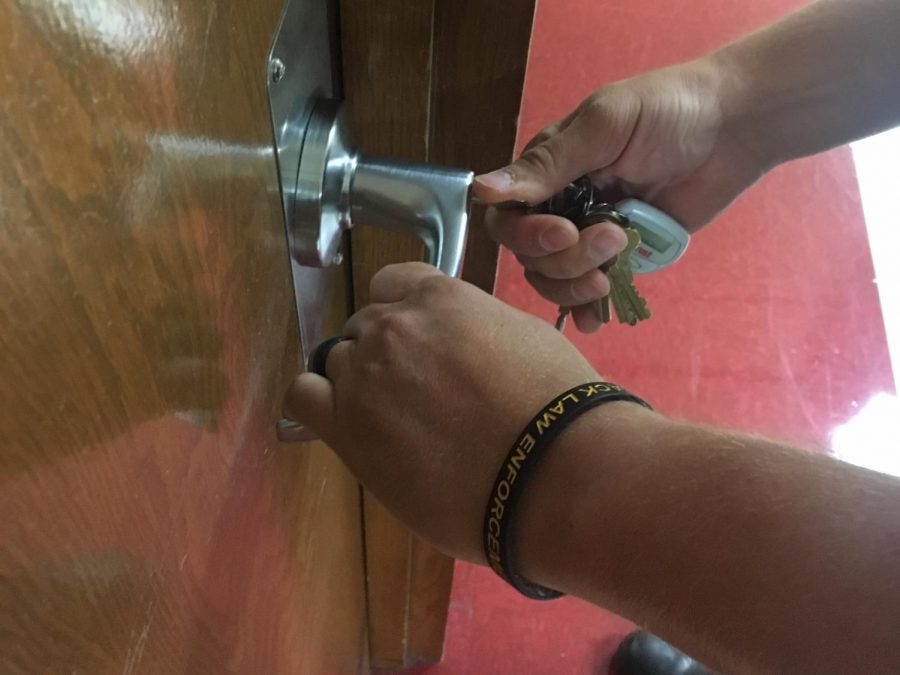KSD intruder training
This school year, all KSD faculty members will be required to attend two one-hour educational training sessions on how to handle an intruder or active shooter situation. Lavaughn Smart, KSD director of safety and security, conducts these sessions following the ALICE training program.
The ALICE program, an acronym which stands for alert, lockdown, inform, counter and evacuate, prepares individuals to proactively handle the threat of an aggressive intruder or active shooter, according to the ALICE training website.
KSD was unable to provide training before the start of the school year. According to Dr. Michael Havener, KHS principal, teacher contracts do not allow for paid time over the summer for training.
Smart and Havener discussed the training sessions at a KHS department chair meeting on Aug. 22. Smart said each department chair is responsible for informing their department and signing up for a training session time. He encourages department chairs to schedule training sessions as soon as possible and emphasizes that he is available five days a week.
Havener said that although it can be difficult emotionally for faculty members to go through this intruder training, new additions to the program are based on research to ensure that trainees are prepared in the case of an intruder situation.
“There’s some information in [the training sessions] that can disturb some people while they’re training,” Havener said. “We don’t want to think about it, but we also need to make sure we’re prepared and trained if an intruder situation ever were to happen.”
Melissa Adams, English teacher, said she sees urgency and importance in attending training sessions, especially considering the prevalence of school shootings recently.
“I feel empowered,” Adams said. “[Going to the training session] will ensure that I am creating a safe environment in my classroom and in the school at large.”
With the ALICE training, Smart said he believes KSD is doing all it can to ensure the district is well educated and preparedAlthough there is not training for students, Smart encourages teachers to to engage in discussions regarding what students should do in an emergency.
“Adults don’t always know if they want to bring it up,” Smart said. “But we don’t really have a choice. If we educate and empower [students and teachers] then they can make decisions. It’s a life skill.”
Your donation will support the student journalists of Kirkwood High School. Your contribution will allow us to purchase equipment and cover our annual website hosting costs.

Interests: writing, chillin with Deb Lavender, listening to music
Favorite food: Sushi <3
Favorite quote: "yeehaw" -myself
If you had to be another...







